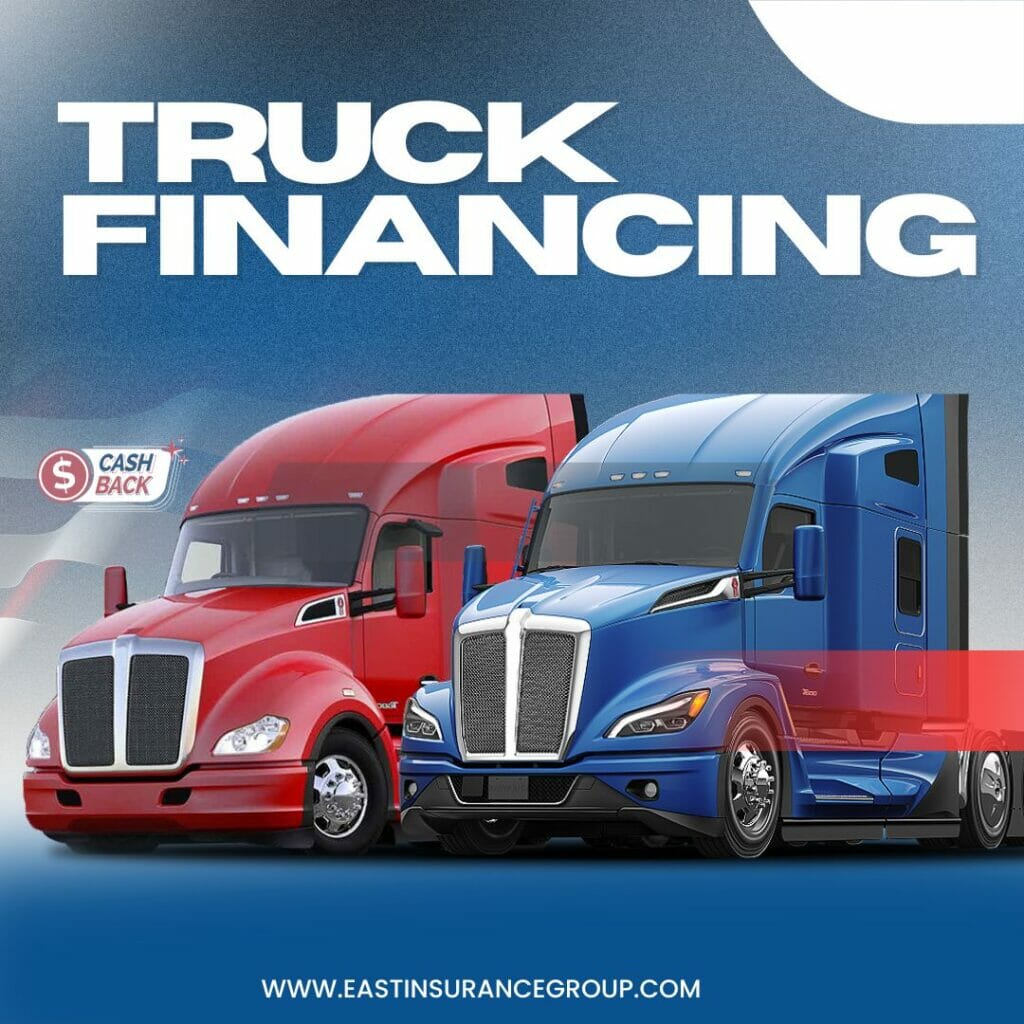As the backbone of the supply chain industry, semi-trucks play a critical role in transporting goods across vast distances. However, acquiring one isn’t a walk in the park due to the steep price tags attached to these behemoth machines. This is where commercial truck financing comes into play, providing an accessible and affordable way to equip your business with the necessary vehicles.
When it comes to the world of commercial truck financing, there’s a wealth of information and considerations that business owners and fleet managers need to explore to make the most informed decisions. In this comprehensive guide, we will delve deep into the intricate details of commercial truck financing, shedding light on the various aspects that go beyond the basic functionalities of a financing calculator.
Understanding Commercial Truck Financing
Commercial truck financing is a specialized form of loan designed to assist business owners in purchasing semi-trucks. These financing options are structured to accommodate the hefty costs of these vehicles, which can easily run into six figures. Commercial truck loans are typically secured, meaning the truck itself serves as collateral.
To truly grasp the nuances of commercial truck financing, it’s important to delve deeper into the mechanics of how these loans work. Unlike personal loans, where your credit score and income are often the primary factors considered, commercial truck financing operates in a distinct manner.
Types of Commercial Truck Financing
When it comes to financing your commercial truck purchase, it’s essential to explore the various types of financing options available. Each option is tailored to different business needs and credit situations, ensuring that there’s a suitable choice for every aspiring truck owner. Here are some of the most common types of commercial truck financing:
- Traditional Bank Loans: traditional bank loans for commercial trucks are offered by well-established banks like Bank of America, Wells Fargo, and others. These loans typically come with several advantages, including relatively low-interest rates and extended loan terms. However, they often require applicants to have a strong credit history and a well-established business. Banks may also request detailed financial documentation, such as income statements, balance sheets, and business plans. It’s worth noting that securing a traditional bank loan for commercial truck financing can be challenging for those with less-than-stellar credit or newer businesses. Banks tend to have strict lending criteria and may not be as flexible in accommodating borrowers with credit issues.
- Direct Lender Loans: direct lender loans are offered by financial institutions that specialize in semi-truck financing, such as CAG Truck Capital and Crest Capital. These lenders understand the unique challenges and opportunities in the commercial trucking industry, making them a valuable resource for truck buyers. Direct lender loans often feature more flexible terms and requirements compared to traditional banks. They may be willing to work with business owners who have bad or fair credit, provided other aspects of the application, such as income and the condition of the truck, meet their criteria. This flexibility can make direct lender loans an attractive option for those who don’t qualify for bank loans.
- Online Lender Loans: online lenders have gained popularity in recent years due to their speed and accessibility. Companies like Credibly and Balboa Capital offer online commercial truck financing options that can provide funding quickly. The application process is typically streamlined, and approval decisions are often faster than traditional lenders. Online lenders may also have more lenient qualification standards, making them suitable for individuals or businesses with less-than-perfect credit histories. However, it’s essential to carefully review the terms and interest rates offered by online lenders, as they may be slightly higher than those of traditional banks or direct lenders.
- Manufacturer Financing: some truck manufacturers offer their own financing programs. These programs are designed to make it easier for buyers to acquire the manufacturer’s trucks. While these programs can be convenient, it’s important to compare the terms and rates with other financing options, as they may not always be the most cost-effective choice.
- Lease Financing: in addition to traditional loans, lease financing is another option to consider. In a lease agreement, you essentially rent the commercial truck for a specified period. This can be advantageous for businesses that require flexibility or expect to upgrade their vehicles frequently. Lease agreements often come with lower upfront costs and may include maintenance and warranty packages.
- Hire Purchase Agreements: a hire purchase agreement is a type of financing where you make regular payments to hire the truck with an option to purchase it at the end of the contract. This arrangement can be suitable for businesses that want to test a truck’s suitability before committing to ownership.
- Equipment Financing: in some cases, you may find lenders who offer equipment financing specifically for commercial trucks. These loans are tailored to the unique requirements of purchasing trucks and can provide favorable terms for qualified applicants.

How to Secure Commercial Truck Financing
Securing commercial truck financing is a process that involves several steps:
Business Evaluation: Before anything else, determine your business’s financial health. This includes assessing your credit score, annual revenue, and business history.
Budgeting: Next, figure out how much you can afford for a down payment and how much you can handle in monthly payments. Be sure to factor in additional costs like fuel, maintenance, insurance, and taxes.
Loan Shopping: Research various lenders and their offerings. Look at their interest rates, loan terms, and any additional fees. Remember to consider your business’s specific needs and financial situation.
Application Preparation: Gather all necessary documentation such as business financial statements, tax records, and personal identification. You’ll also need information about the truck you want to finance, including its make, model, year, mileage, and purchase price.
Application Submission: Submit your loan application. If approved, review the loan agreement carefully before signing.
Commercial Truck Financing Requirements
While requirements may vary between lenders, here are some general prerequisites for securing commercial truck financing:
A decent credit score (though some lenders cater to those with bad credit)
- A minimum amount of time in business (typically 1-2 years)
- A certain amount of annual revenue
- A commercial driver’s license (CDL)
In addition, the truck you intend to finance usually needs to meet specific criteria, such as age, mileage, and condition.
Commercial Truck Financing: Banks vs. Direct Lenders
Both banks and direct lenders offer commercial truck financing, but each comes with its pros and cons.
Banks: Banks typically offer lower interest rates, making them the more affordable option. However, they usually have stricter credit requirements and a longer approval process.
Direct Lenders: Direct lenders, on the other hand, can approve and fund loans much faster than banks. They also tend to be more flexible with their requirements, making them a good option for those with bad credit or newer businesses.
Commercial Truck Financing for Bad Credit
Having bad credit doesn’t necessarily mean you’re out of options for commercial truck financing. Many lenders understand that the trucking industry can be unpredictable and are willing to work with business owners who have less-than-perfect credit. These lenders typically look at other factors like business performance and the type of truck being financed when making their decision.
However, keep in mind that financing a commercial truck with bad credit often comes with higher interest rates and stricter terms. It’s crucial to ensure that you can afford the payments before moving forward.
Best Commercial Truck Financing Options in 2023
A multitude of lenders offer commercial truck financing, each with its unique benefits. Here are some top options for 2023:
- National Funding: Great for loan and lease options with no down payment requirements.
- Bank of America: Best for low starting rates and comprehensive loan details.
- Credibly: Ideal for business owners with bad credit who need fast funding.
- CAG Truck Capital: Specializes in semi-truck financing and offers expert advice.
- Triton Capital: Offers low rates and flexible payment options for established businesses.
- Balboa Capital: Provides financing for fair credit and has a quick online application process.
- Truck Lenders USA: Offers flexible financing options with an easy application process.
- Commercial Fleet Financing: Ideal for quick application and funding.
- TAB Bank: Perfect for semi-truck drivers who want both banking and lending services from the same institution.
The Role of Insurance in Commercial Truck Financing
Insurance plays a significant role in commercial truck financing. Lenders usually require borrowers to have comprehensive and collision insurance on their semi-trucks. This protects the lender’s investment if the truck is damaged or totaled. It’s crucial to factor in the cost of insurance when budgeting for a commercial truck loan.
Leasing vs. Financing a Commercial Truck
When it comes to acquiring a semi-truck, business owners often find themselves choosing between leasing and financing. Each option has its advantages and drawbacks.
Leasing: Leasing a semi-truck typically involves lower upfront costs and smaller monthly payments. It’s a good option for startups or businesses that need to maintain a newer fleet of trucks. However, you don’t own the truck at the end of the lease.
Financing: Financing a semi-truck allows you to own the truck outright once the loan is paid off. It’s a good option if you plan to use the truck for a long time and can afford the higher monthly payments. However, financing usually requires a significant down payment.
Conclusion
Securing commercial truck financing can be a complex process, but with the right knowledge and preparation, it’s entirely achievable. Whether you’re a well-established business with excellent credit or a new owner-operator with less-than-perfect credit, there are financing options available to suit your needs. By understanding the different types of financing, the application process, and the role of insurance, you can make an informed decision and keep your business rolling.

